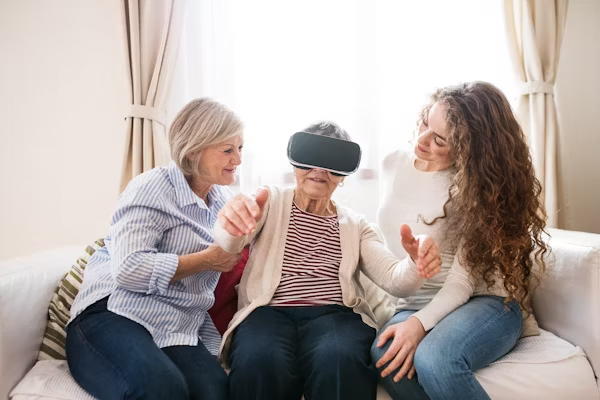Balancing Recovery and Professional Responsibilities
For many professionals, the biggest barrier to seeking help for addiction isn’t denial—it’s time. Between demanding work schedules, family responsibilities, and personal commitments, taking several weeks off for residential treatment can feel impossible. That’s where flexible care options like evening and virtual rehab programs come in.
Modern recovery programs, including specialized rehab for executives, are designed to help working adults receive comprehensive treatment while maintaining career stability. This innovative approach bridges the gap between clinical care and real-world responsibility, making it easier for professionals to prioritize both health and productivity.
The Need for Accessible and Flexible Treatment
According to the Substance Abuse and Mental Health Services Administration (SAMHSA), millions of adults with substance use disorders go untreated each year—often citing work or time constraints as major obstacles. The reality is that addiction doesn’t discriminate based on job title or success level, and neither should access to treatment.
Evening and virtual rehab programs offer a solution by providing evidence-based therapy in formats that fit within a professional’s daily life. Participants can receive care after business hours or through secure telehealth platforms, reducing disruption to their work and family routines.
Key Benefits of Evening and Virtual Rehab Programs
1. Flexibility Without Compromise
Evening and virtual programs provide the same quality of care as traditional inpatient or outpatient treatment, but on a schedule that supports balance. Clients can attend group therapy, individual counseling, and educational sessions without having to take extended leave from their careers.
This flexibility encourages participation and consistency—two factors that are critical for lasting recovery.
2. Privacy and Confidentiality
Many professionals worry about confidentiality when seeking addiction treatment. Virtual and evening programs offer greater discretion, allowing individuals to engage in therapy from the privacy of their homes or after work hours. This helps reduce stigma and makes it easier to commit fully to the process without fear of professional repercussions.
3. Real-World Integration
Unlike residential treatment, which removes individuals from their daily environments, flexible programs allow clients to apply recovery tools in real time. This approach fosters long-term success by teaching people how to manage triggers, stress, and workplace pressures while maintaining accountability and support.
Learning to navigate recovery in everyday life ensures that sobriety becomes sustainable, not just situational.
4. Access to Specialized Care
Evening and virtual rehab programs often attract professionals from diverse fields—executives, healthcare providers, and business leaders—who share similar challenges and responsibilities. This creates a supportive community that understands the unique pressures of professional life.
Specialized programs for executives also focus on leadership stress, burnout, and decision-making under pressure—core issues that often contribute to substance use.
Technology’s Role in Modern Recovery
Telehealth has transformed how people access behavioral health care. Virtual rehab allows clients to participate in therapy through secure video sessions, attend support groups remotely, and communicate regularly with counselors.
This convenience not only increases accessibility but also helps maintain continuity of care for those who travel frequently or live in areas without nearby treatment centers.
Many hybrid programs combine both in-person and virtual elements, giving clients the best of both worlds—a structured treatment plan with the flexibility to choose how and when they engage.
The Importance of Accountability and Support
Evening and online treatment programs still emphasize accountability. Regular check-ins, goal setting, and group participation help clients stay engaged and responsible for their progress. Peer support is especially valuable for working adults who may feel isolated in their recovery journey.
By connecting with others who face similar professional pressures, participants gain encouragement and perspective while building healthier coping strategies.
Parkdale Center: Flexible, Compassionate Care for Professionals
Parkdale Center specializes in helping working professionals find balance between their careers and recovery. Their programs are designed specifically for executives, healthcare providers, and business leaders who require flexible treatment without sacrificing quality care.
Through evidence-based therapy, peer support, and convenient scheduling—including evening and virtual options—Parkdale Center empowers professionals to heal while maintaining their responsibilities. Their approach recognizes that recovery is not a pause on life, but a way to reclaim control of it.
Take the First Step Toward Sustainable Recovery
Work shouldn’t stand in the way of getting help. Whether through an evening program or virtual care, flexible treatment options make it possible to address addiction while continuing to meet professional obligations.
If you or someone you know is struggling, explore executive-focused treatment programs that understand the balance between recovery and responsibility. Healing doesn’t have to mean stepping away from your career—it can mean stepping back into it with clarity, confidence, and renewed purpose.

